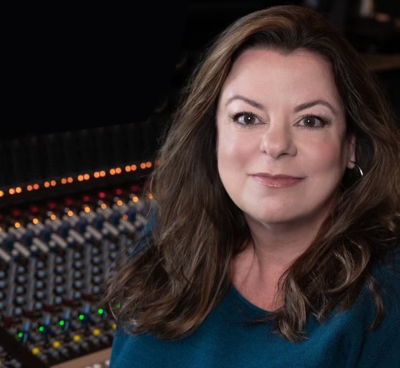Rachel Stilwell’s Advocacy for Musician’s Rights Earns Billboard Recognition

When music executive, Rachel Stilwell ’05 matriculated at LMU Loyola Law School in 2002, she thought that acquiring her law degree might help her segue out of a contracting record label industry and into an unrelated career as a litigator. Instead, Stilwell used her combined music business experience and newly acquired legal skills to help her music career expand greatly.
Prior to enrolling at LLS, Stilwell was an executive in Verve Music Group’s marketing and radio promotions teams. However, as retail, broadcast and record label industries consolidated in the face of and file-sharing services and early streaming platforms, Stilwell used her law degree as a springboard to representing music creators in complex business deals. After graduating from LLS, Stilwell joined a mid-sized firm with entertainment and IP practices, finding herself at home negotiating deals involving copyright and trademark matters that contained echoes of her earlier career in the music business.
Those skills further enabled her to start her own firm and create an additional practice area involving advocacy of music creators before government agencies.
“Having worked closely with radio programmers before law school, I care about listeners having opportunities to hear diverse voices and viewpoints,” said Stilwell, reflecting on just one of the reasons she’s passionate about the industry. “Viewpoint diversity includes music and lyrics. Since the music business is aligned with public interest here, I’m privileged to work in that space.”
Stilwell represents the musicFIRST Coalition, a group working to ensure music creators receive fair pay for their work, in matters before the FCC pertaining to the ownership restrictions on AM/FM radio that protect the public interest in diversity, localism and local competition. It’s the natural extension of a passion she first found at LLS.
“Being part of the law review at Loyola gave me the freedom to pursue a topic I was passionate about: How the FCC’s governance of media ownership deregulations affects the music community and fans – one issue I address now through my own law practice at Stilwell Law.”
The importance of persuasive writing, a skill Stilwell practices almost daily, was a lesson she learned early on in Professor Sean Kennedy’s Appellate Advocacy class. The same goes for other subject areas. “While I don’t use bankruptcy law often in my practice, the statutory interpretation skills that Professor Schechter taught me have proven invaluable,” she said.
The musicFIRST Coalition is composed of stakeholders within the recorded music industry, including the Recording Academy, Latin Recording Academy, SoundExchange, R.I.A.A., American Association of Independent Music, American Federation of Musicians, SAG-AFTRA, Rhythm & Blues Foundation, Christian Music Trade Association, Music Managers Forums and the Vocal Group. The role allows Stilwell to flex one of her strongest muscles: communicating with and serving creative professionals. Law school helped Stilwell shape her prior strengths into superpowers.
Stilwell has earned perennial recognition among peers as a leading voice in the music and entertainment legal community. In March 2022, Stilwell was named to Billboard’s Top Music Lawyers report, for the fourth consecutive year. Stilwell is grateful for this validation of her contributions and impact on the industry. “It’s gratifying to be among peers who excel at what they do. That said, two years into this pandemic, I just wish I could see them all in person again on a regular basis!”
Stilwell encourages aspiring music attorneys to consider joining the Recording Academy’s GRAMMY U membership program and entering its annual Entertainment Law Initiative Writing Competition, programs with which she became familiar with after having held positions as Governor and Officer of the Academy’s Los Angeles Chapter.
“The most fun part of my experience with the Recording Academy has been as a volunteer on the Advocacy Committee, where we meet with members of Congress to advocate for fair pay for the use of musicians’ work,” she said. “I’ve been doing that work for well over a decade and somehow it never gets old.”